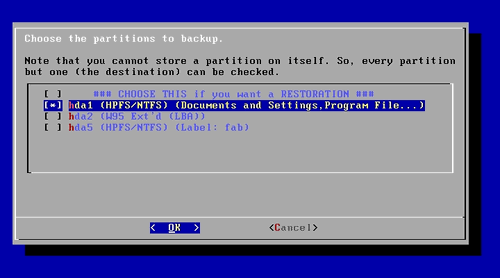Oct 23, 2018 Download the Norton Bootable Recovery Tool ISO file on a computer that is not infected. If you create Norton Bootable Recovery Tool on an infected computer, there is a chance that the recovery DVD or USB drive might get infected. Download the Norton Bootable Recovery Tool ISO file on a computer that is not infected. If you create Norton Bootable Recovery Tool on an infected computer, there is a chance that the recovery DVD or USB drive might get infected.
Making your Ghost network boot floppies into CDÂ’s
Since more and more systems are shipping without floppy drives, it is becoming more and more convenient – if not necessary – to have Ghost network boot CD’s.
What follows assumes you have fairly solid experience and understanding of the Ghost Boot Disk Wizard, the Windows 98 boot diskette, PC DOS vs. MS DOS, and burning bootable CDÂ’s.
Here are two of the best options.

Ghost Boot Cd Iso Download
1. If you are willing to invest some time to build a boot CD that supports multiple network cards, some of the best information and utilities on the web are found at “Bart's way to create bootable CD-Roms” at http://www.nu2.nu/bootcd.
2. If you have Symantec Ghost and/or Nero or Roxio, you want to build a boot CD quickly, and you donÂ’t mind being limited to one supported NIC per CD, do the following:
a. Build your Ghost boot floppy with NIC support using the Ghost Boot Disk Wizard.
Ghost Boot Disk Download

b. NOTE: do not build your boot floppy using PC DOS files; this is the Boot Disk WizardÂ’s default option. If you do, the CDÂ’s character set will not be recognized when you boot from it, and all you will see a single line of scrambled text.
c. DO build your boot floppy using MS DOS files. If this option is grayed out, you will need to load these files from a Windows 98 boot disk, or some other source.
d. Burn your CD. The following steps are for Nero, but most should translate for Roxio and other burning apps as well:
• From the “New Compilation” dialogue box, choose “CD-ROM (boot)”
• On the “Boot” tab, set your “Source of boot image data” as an “Image File”, and select your floppy drive that has the MS DOS Ghost Network boot disk you created above
• “Enable expert settings” should be deselected, making all other options underneath it unavailable.
• On the “ISO” tab, the “Data mode:” should be set to “Mode 1”

• On the ISO tab, “File System:” should be set to “ISO 9660 only”
• On the ISO tab, “File name length (ISO):” should be set to “Max of 11 = 8 +3 chars (Level 1)”
• On the ISO tab, “Character set (ISO):” should be set to “ISO 9660 (standard ISO CD-ROM)”
• On the ISO tab, “Relax restrictions”, all boxes under “Relax Restrictions” should be unchecked. Remember that this is an MS DOS boot disk, and that is why these should be deselected.
You are now ready to burn and boot.
One additional note: Ghost 8.x Enterprise Edition makes this much more difficult to do, since its new routine does not fit onto one floppy anymore. The easiest solution is to make your boot diskette with version 7.x if you have it, then replace ghost.exe with the 8.x version.
Otherwise, the PXE booting functionality in version 8 is worth learning.
The following steps detail how to create a bootable USB stick which will open ghost and have a network connection available.
The process takes advantage of the Netboot application package which has most current network drivers included. For more information on Netboot – http://netbootdisk.com
Please Note:
- You will require the GHOST.EXE file from your licenced install on the Ghost server – This can be found in the programs files folder.
- A USB drive which has more than 256MB is required
- All existing data will be erased from the USB drive
- Download and install the HP USB Disk Storage Format Tool – Download
- Download the required system files – Download
- Extract the system files to a temporary location (e.g. C:TEMP)
- Open the ‘HP USB Disk Storage Format Tool’ utility from the ‘All Programs’ menu
- Under ‘Device’ select the USB drive
- Place a tick next to ‘Create a DOS startup disk’ and the path to the extracted DOS system files (e.g. C:TEMPRequiredFilesSystemFiles)
- Click ‘Start’ then ‘Yes’
- Once complete, click ‘OK’
- Browse to the extracted files and send the ‘NetBoot’ folder to your USB drive (Right Click -> Send To -> USB Drive)
- Browse to the extracted files and send the contents of the ‘SystemFiles’ folder to your USB drive (Right Click -> Send To -> USB Drive)
- Locate your licenced copy of the DOS GHOST.EXE file and save it to the Netboot folder (e.g. H:Netboot)
- The USB drive is now bootable and has the required files.